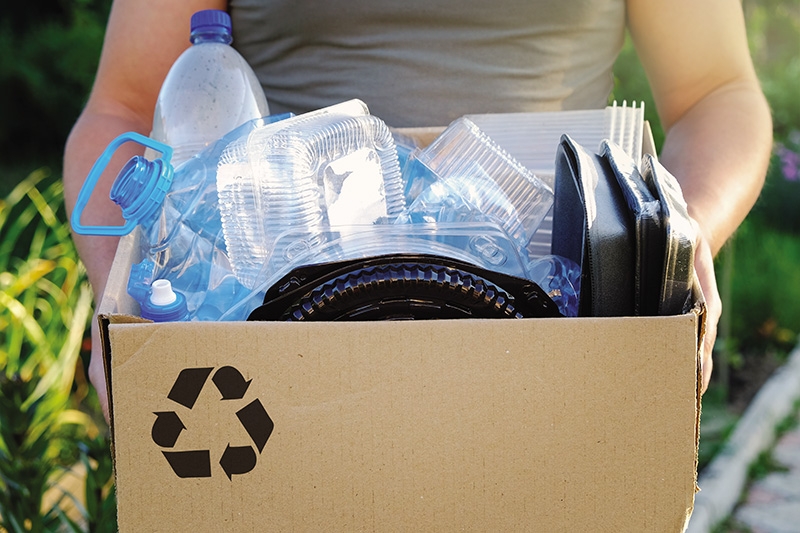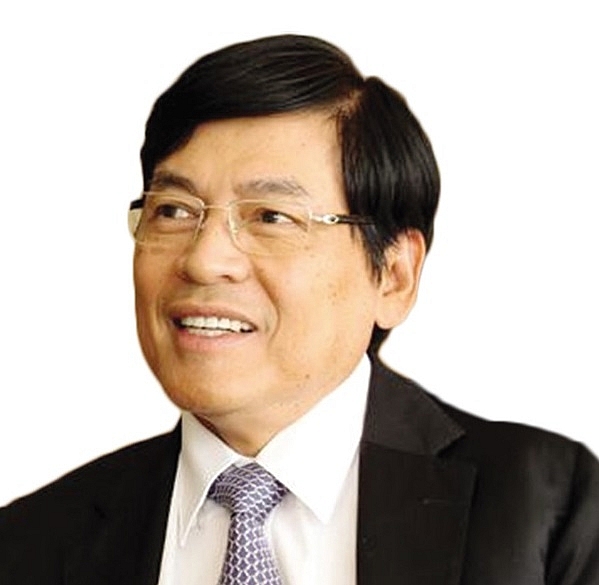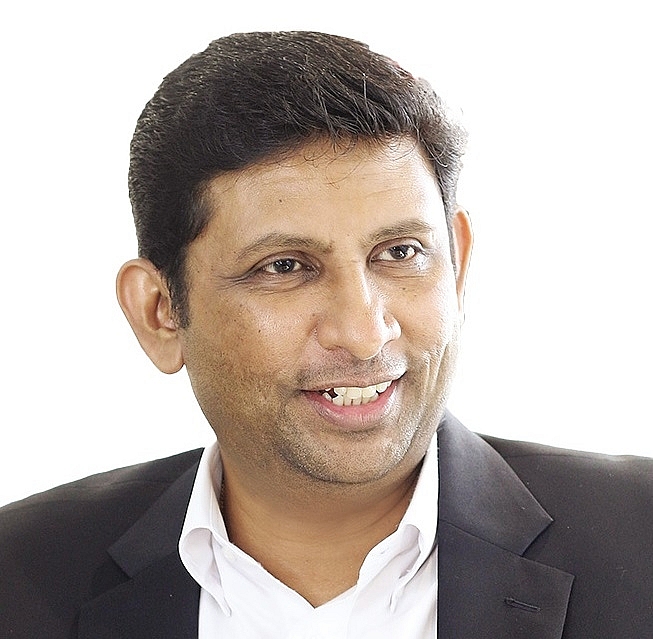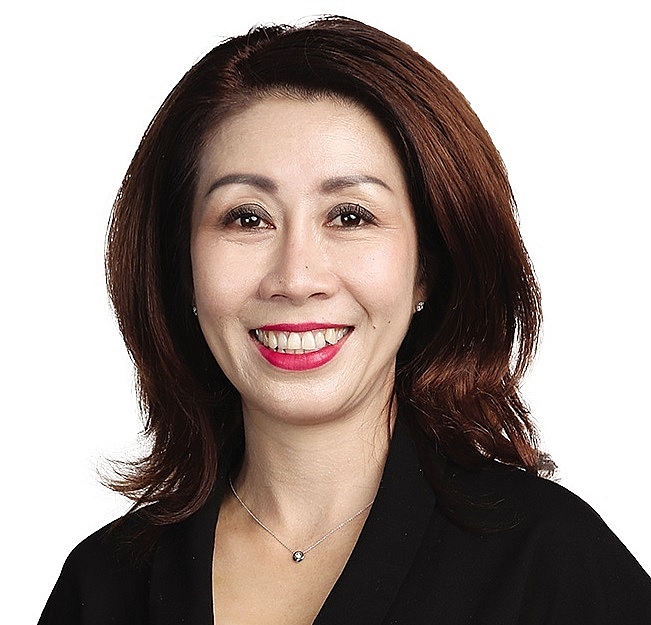Groups striving for plastic reduction
 |
| PRO Vietnam, launched in June, is the first major collaboration in the country by major companies looking to actively limit plastic waste Photo: Shutterstock |
By the end of September, the last 200m of a kilometre-long recycled plastic asphalt road will be completed in Deep C Industrial Zone in the northern port city of Haiphong. One million tonnes of plastic bags collected from dumpsites will have been used for the project, in a modern way of protecting the environment, contributing to reducing a large amount of unrecycled plastic waste, and creating a new type of material.
Ekkasit Lakkananithiphan, general director of Dow, told VIR, “We have worked with URENCO Haiphong, where they will collect and wash plastic bags which will be cut into 2-3cm pieces then mixed with asphalt to make the road. Roads made of plastic bags are better and cheaper than normal ones.”
Dow Vietnam will build another 1.2km asphalt road by the end of November in the same way. “We will expand this project with another partner in Hai Duong. We hope that we can co-operate with more partners around Vietnam to partly help the country resolve its plastic waste issue,” he added.
Before implementing the experimental project in Vietnam, Dow had built around 100km of recycled plastic roads in various other countries. Thanks to this innovation, Dow was recently placed on Fortune’s 2019 list of companies that are changing the world for the better.
Handling waste with tech
While solid waste is a huge resource, it causes heavy pollution due a lack of sorting at the source. Recognising Vietnam’s problem, mGreen Social Enterprise applied Mobile Coalition Loyalty technology in the mGreen application to increase awareness of separating at source to protect the environment.
Tran Thi Thoa of mGreen Social Enterprise told VIR, “mGreen was born under the programme called For a Green Vietnam, launched by the Ho Chi Minh Communist Youth Union. Households using this app will be provided with electronic point cards and recycling bins.”
According to Thoa, at the beginning mGreen aims to encourage people to get into the habit of separating waste by supporting the collection and treatment of recyclable waste through the application of technology on smartphones. Then, in the long term, with the co-operation of residential areas, schools, and offices in Hanoi and Ho Chi Minh City, mGreen is to focus on sustainable development across the country.
“People are shown how to identify and classify recyclable waste like paper, metal, and plastic. Then, residents open the app and press the call button to notify the collectors. Based on the amount of recyclables determined by the collector, residents will be rewarded on their card,” Thoa said. “These points can be redeemed for gifts via ePoint, or used for shopping, dining, and entertainment.”
Along with collecting waste from residential areas, schools, and offices, mGreen has also co-operated with Unilever and Citenco to collect all of their plastic bags according to the Zero Waste to Nature campaign in Tan Phu of Ho Chi Minh City. “The collected plastic waste is provided to companies like Duy Tan Plastic, Biological Bag Company, and Gimex II,” Thoa added.
Currently, mGreen and Ho Chi Minh City Department of Natural Resources and Environment is co-operating with VNPT in Ho Chi Minh City to build an easily-accessible smartphone app for sorting solid waste at the source.
In the future, Ho Chi Minh City will study software and applications for monitoring solid waste collection, transportation, and treatment, then distribute this to the public to jointly inspect and supervise solid waste management activities.
Action from manufacturers
Answering the call to protect the environment and increase sustainable development, a coalition of nine leading companies from the consumer goods and packaging industry aims to contribute to a clean, green, and beautiful Vietnam by driving the circular economy and making recycling of packaging more accessible and sustainable.
The nine founding members who have come forward with the initiative to form the Packaging Recycling Organization Vietnam (PRO Vietnam) are Coca-Cola Vietnam, FrieslandCampina, La Vie, Nestlé Vietnam, NutiFood, Suntory PepsiCo Vietnam, Tetra Pak Vietnam, TH Group, and URC Vietnam. The campaign marks the first time that competing businesses have collaborated in Vietnam to collectively work on improving the environment.
One of the nine members of PRO Vietnam, TH Group set the target that by 2030, no TH true MILK cartons will become waste. Instead, the packaging will be collected and recycled into other useful materials and products, as a circular economy will be built to reduce plastic waste, packaging waste, and solid waste in general.
Iconic American soft drinks giant Coca-Cola also set its 2020 sustainability goals to work with its partners to recover and recycle the equivalent of 75 per cent of the bottles and cans that the company introduces into the developed market. The firm already made progress by recovering and recycling 59 per cent of its bottles and cans in 2017.
Another example of the push for sustainable development can be seen at URC, a leading food and beverage company with a growing multinational presence through the ASEAN, China, and Oceania. URC Vietnam has shown its ambition by pledging that by 2030, all packaging by participating members of PRO Vietnam for sale on the market will be collected and recycled.
According to Laurent Levan, president and CEO of URC Vietnam, the founding members all agreed on the principles for PRO Vietnam. Therefore, the activities of the organisation will ensure the harmonisation of economic, social, and environmental benefits, and balance the creation of utility products with environmental protection.
The commitment towards sustainable development is solidified by a “production transformation” strategy, focusing on natural resources and products in the first five years and expanding into the supply chain and business sectors until 2030.
In Vietnam, a series of initiatives have been applied in production to optimise material usage. URC factories with high levels of water use have a reverse osmosis system, and reuse the water from the system to optimise water input and limit wastewater discharge.
Water used in packaging and sterilising systems is also reused, with all treated wastewater meeting the standards as mixed into the centralised collection system of Vietnam-Singapore Industrial Park.
| Pham Phu Ngoc Trai – Chairman Packaging Recycling Organisation Vietnam
In carrying out the mission to drive the circular economy in Vietnam and help make packaging recycling more accessible and suitable, PRO Vietnam’s ambition is that by 2030, all packaging sold by our members into the market will be collected for recycling. Our focus will be building and developing a packaging collection system based on partnership with local authorities and stakeholders in the industry to drive recycling activities, for example, by connecting with government bodies in our role as corporate citizen. Ganesan Ampalavanar – CEO Nestlé Vietnam
Nestlé has pledged to reuse and recycle 100 per cent of its product packaging by 2025. Under a national plastic waste reduction campaign launched by the MoNRE, the company has committed that all waste would be collected and classified at source and all of its plants would not bury solid waste. For international enterprises, creating common values is a part of the sustainable development process based on vision, mission, and growth strategy, and that commitment is closely linked to their production and business activities. We see activities of creating shared values as a long-term investment for sustainable development and future success. Many people think that it is a business that must be profitable to start contributing to society. This is not accurate because right from the beginning, Nestlé believes that to develop Vietnam we must go hand-in-hand with the interests of consumers, society, and the community. The government and other relevant stakeholders should develop an ecosystem to facilitate collecting and recycling waste. We are willing to share initiatives and experiences to lend a helping hand in the country’s campaign of environmental protection. Le Tu Cam Ly - Communications director Legal and public affairs Coca-Cola Vietnam
In early 2018, Coca-Cola published the global strategy World Without Waste, with the vision of collecting and recycling 100 per cent of bottles and cans released to the environment in 2030. To materialise the target, Coca-Cola has been researching and applying many kinds of eco-friendly materials to produce packages and developing the system of rubbish classification. We have been launching many ideas in packaging innovation towards environmentally-friendly activities like using more sustainable materials or recycled materials in producing packages. However, our biggest issue regards the ineffective and inappropriate systems of waste treatments, partly due to the lack of recycling facilities in Vietnam. If recycling activities are not carried out thoroughly, used packages will be wasteful resources. To resolve the issue, I hope the government will develop specific policies and incentives to encourage companies to invest more in technologies that support the manufacture of eco-friendly packages more effectively. |
What the stars mean:
★ Poor ★ ★ Promising ★★★ Good ★★★★ Very good ★★★★★ Exceptional
Related Contents
Latest News
More News
- Congratulations from VFF Central Committee's int’l partners to 14th National Party Congress (January 25, 2026 | 09:46)
- List of newly-elected members of 14th Political Bureau announced (January 23, 2026 | 16:27)
- 14th Party Central Committee unanimously elects To Lam as General Secretary (January 23, 2026 | 16:22)
- List of members of 14th Party Central Committee announced (January 23, 2026 | 09:12)
- Highlights of fourth working day of 14th National Party Congress (January 23, 2026 | 09:06)
- Press provides timely, accurate coverage of 14th National Party Congress (January 22, 2026 | 09:49)
- Press release on second working day of 14th National Party Congress (January 22, 2026 | 09:19)
- Minister sets out key directions to promote intrinsic strength of Vietnamese culture (January 22, 2026 | 09:16)
- 14th National Party Congress: Renewed momentum for OVs to contribute to homeland (January 21, 2026 | 09:49)
- Party Congress building momentum for a new era of national growth (January 20, 2026 | 15:00)




 Tag:
Tag:




















 Mobile Version
Mobile Version